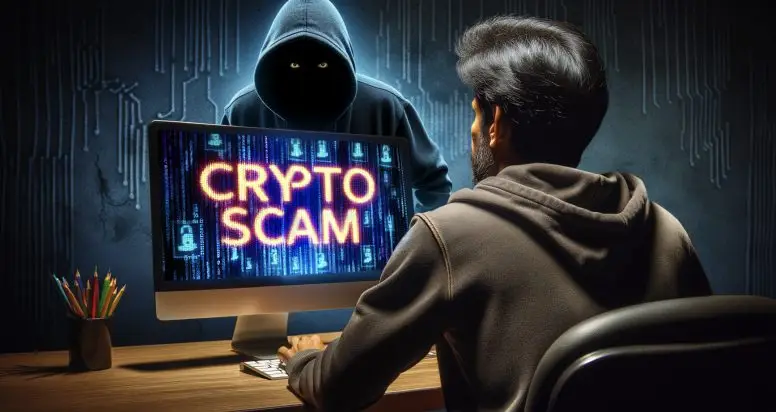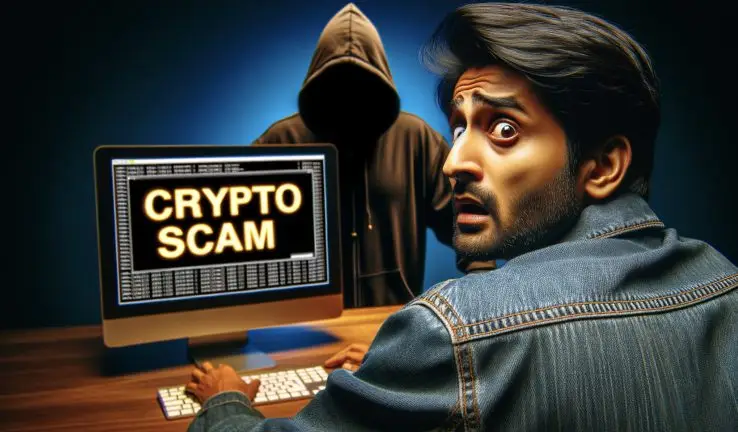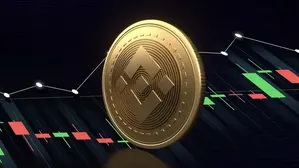Your guide: Crypto Scam Warning Signs
The world of digital currencies has changed very quickly. As more people look into investing in crypto, con artists have come up with clever ways to take advantage of people who don’t know what’s going on. It’s important to know how to spot crypto scam warning signs to protect your assets. So, if you’ve ever wondered, what are some Crypto Scam Warning Signs you’ve come to the right place. Keep reading to learn more.
Also read: Coinbase Receives Approval to Launch Crypto Services in the UK

The Rise of Scams in Cryptocurrency
As digital assets become more popular, there are a lot more cryptocurrency scams. Fraudsters use the fact that blockchain technology is hard to understand to trick investors. Crypto markets are appealing to scammers because they are decentralized and not always regulated.
In the past few years, there has been a big rise in fraud involving crypto. Scammers change their tricks quickly and use new technologies to make their schemes seem real. More people could be victims as more people get into crypto.
Cybercriminals target crypto investors in many different ways. These can be as simple as phishing emails or as complicated as fake trading platforms. To protect your digital assets, you need to know about these strategies.
Cryptocurrency scams that happen a lot
There are many kinds of cryptocurrency scams. Here are some common types:
- Not real exchanges
- Using Ponzi schemes
- Scams called “pump and dump”
- Phishing is an attack
- ICOs that aren’t what they seem to be
- Some things make each type of scam different. But they often have the same warning signs. If you learn to spot these warning signs, you can stay safe from crypto fraud.
What to Look Out for in Crypto Investment Scams
Several red flags can point to a possible crypto scam. Watch out for:
- Promises of sure-fire high returns
- A lot of pressure to invest quickly
- Offers to invest without being asked
- It’s not clear what the project is in
- Unchecked endorsements from famous people
These red flags often show up together. You should be very careful about making any investments if you see more than one red flag.

Scams that use social engineering to trick people
A big part of many crypto scams is using social engineering to trick people. Fraudsters use the way people think and feel to trick people into making bad choices. They could use fear, greed, or a need to act quickly to make you not think clearly.
Scammers often make up fake identities to get people to trust them. They might say they are good at investing or know a lot about cryptocurrencies. By showing that they can be trusted, they can get people to give them money more easily.
Be wary of investment advice you didn’t ask for, especially if it comes from someone you don’t know online. Check the credentials and identity of anyone offering financial advice. Remember that real investment opportunities don’t usually come from random people you meet on social media.
Also read: Become a Millionaire by 2030 With These 2 Cryptocurrencies Chosen By DeepSeek AI
Spotting Fake Cryptocurrency Websites
Fake websites are a common tool used by crypto scammers. These sites often mimic legitimate exchanges or wallet services. They may have professional-looking designs and seemingly authentic features.
To spot fake crypto websites, look for:
- Small spelling mistakes in the URL
- Not having an https secure connection
- Misspelled or badly written words
- Not having any contact information
Promises or offers that can’t be kept
Always double-check the website address before entering any sensitive information. Use bookmarks for frequently visited crypto sites to avoid accidentally accessing fake versions.
This is why fake mobile apps are bad:
Scammers also make fake apps for phones to trick crypto investors. These apps might look like they are real, but they are scams meant to steal your money or personal details. A lot of the time, they look like well-known wallet apps or trading platforms.
- Keep yourself safe from fake crypto apps by only getting apps from real app stores.
- Look at the developer’s profile and reviews.
- Wait to download or review apps that don’t have many.
- Check the app’s legitimacy on the app’s official website.
- You should never put your private keys into a mobile app.
- Remember that real crypto companies don’t usually ask for private data through mobile apps. It’s likely a scam if an app asks for your private keys or seed phrase.

How Pump-and-Dump Schemes Work
There are a lot of pump-and-dump schemes in the crypto world. In these scams, con artists raise the price of a cryptocurrency that doesn’t have much value. Then, they sell their holdings at a higher price, which brings down the value.
Here are some signs of a pump-and-dump scheme:
- Prices go up quickly and dramatically
- A lot of advertising on social media
- Promises of guaranteed returns
- Pressure to buy quickly
The coin doesn’t have any real value
Be wary of any cryptocurrency that grows quickly for no clear reason. Research the project thoroughly before investing. Don’t believe something if it seems too good to be true.
The Risks of Exchanges That Aren’t Regulated
Crypto exchanges that aren’t regulated put investors at great risk. These platforms mayn’t have the right security measures in place or are involved in fraud. They could change prices, make trades before they happen, or even take users’ money and run.
If you want to pick a crypto exchange:
- Find out how well-known the platform is.
- Make sure the right licenses and rules are in place.
- Look for strong safety measures.
- Read reviews and stories from other users.
- To test the platform, start with small amounts.
- When possible, only trade on exchanges that are well-known and regulated. Even though the fees are higher, the extra safety is worth it.
How to Keep Your Crypto Wallet Safe
Your crypto wallet is the place where all of your digital assets are kept. It should be your first priority to keep it safe. Scammers often try to get into wallets through phishing and malware attacks, among other methods.
To keep your crypto wallet safe:
- For big amounts of money, use a hardware wallet.
- Turn on two-factor authentication
- Do not let anyone else see your private keys or seed phrases.
- Be careful of malware that takes over your clipboard.
- Update your wallet software often.
- Don’t forget that once you make a transaction, you can’t take it back. Check addresses twice before sending crypto to make sure you’re not falling for a scam.
Why due diligence is important
The best way to protect yourself from crypto scams is to do a lot of research. Do your research before putting money into a project or starting to use a new platform. As part of this process, claims are checked, the project team is looked at, and the technology is evaluated.
Important parts of crypto due diligence are:
- Looking over the white paper
- Looking at the project’s GitHub page
- Checking the backgrounds of team members
- Looking at the token economy
- Looking over independent audits
- Don’t just believe what you read in ads or on social media. Find objective data from sources you can trust. Don’t rush into investments; take your time.
Reporting Scams in Cryptocurrency
It is important to report crypto scams if you come across them. This helps the police find and stop fraud. It might also keep other people from falling for the same scam.
How to tell someone about a crypto scam:
- Keep track of everything you do with the scammer and tell the police in your area.
- Send a complaint to the right financial authorities
- Let the crypto exchange or platform know about it.
- Talk about your experience on trustworthy forums
- Remember that telling others about a scam can help protect others, even if you don’t lose money. The information you give could be very helpful in stopping fraud.
Conclusion: Crypto Scam Warning Signs
The world of cryptocurrency scams is always changing. To protect your investments, you need to know about new threats and strategies. Regularly learn about the newest scams and the safest ways to stay online. If you see something or feel that something is too good to be true, you’re probably right. It’s always a good idea to do your research and when possible ask for any recommendations before buying. Happy trading and stay safe!






